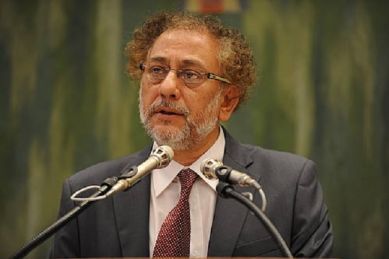Int'l Church Dialogue: WCC Spotlights 'Misuse' of Pakistan's Blasphemy Law in Geneva Forum

The World Council of Churches on Monday began a three day international hearing focusing on the "Misuse of the blasphemy law and the plight of religious minorities in Pakistan."
The hearings are taking place in Geneva, Switzerland and are being organized by the World Council of Churches' Commission of the Churches on International Affairs (CCIA).
Bishop Samuel Azariah, moderator of the Church of Pakistan, told WCC that the hearing is an opportunity for Christians along with other Muslim partners to "register their concern and protest against abuse of the law."
A participant who spoke on the first day of the conference gave his view of blasphemy law and what it means to Pakistan.
"The misuse of blasphemy law is contrary to the vision of Pakistan as a moderate and democratic country," said Mohammed Tahseen, head of the South Asia Partnership in Pakistan.
Tahseen is an activist advocating for the rights of religious minorities, women and other vulnerable groups in the country.
"The religious voices, as part of the civil society must reject the concept of second class citizenship, asserting equality of all human beings in a democracy," he said.
Tahseen noted the lack of democracy in the country, its participation in the war against the Soviet Union in the 1980s and developments after 9/11 as major factors behind violence done in the name of Islam.
"In Pakistan we are fighting against the blasphemy law and its abuse. However, it is also important that international community supports the values of democracy and people's struggles in Pakistan," added Tahseen.
Church of Pakistan Moderator Speaks Out
Ahead of the conference, Bishop Samuel Azariah, moderator of the Church of Christ told WCC that he hopes the government will consider repealing the clause in its laws which, he said, invokes misuse of the blasphemy law.
The law has been in existence since 1947, the date of Pakistan's founding.
Some changes to the law were made in the 1930s at the request of Islamic parities the WCC said.
The B and C clauses of section 295 in the Pakistan Penal Code have been used "to victimize religious minorities," the WCC said.
Blasphemy cases have led to death penalties and mob-instigated violence, the group says.
Bishop Azariah spoke about the recent case of Rimsha Masih, an eleven year old girl accused of blasphemy.
"Churches in Pakistan, media and civil society in the country have raised their voices against this case," he said. "This is evidently a proof of the misuse of the law."
"Yet, Rimsha's case is one among many," he added.
Rimsha Masih was arrested on August 16 on a charge of blasphemy. She has been released and taken to an undisclosed location for her own security.
Rimsha says religious minorities and even some Muslim sects have been affected.
"A majority of the cases have proved to be false, which has disturbed the fabric of trust in our society," he said.
He said the WCC dialogue was an attempt to help churches understand the situation of religious minorities in Pakistan.
Present at the hearing will be representatives of Muslim and Hindu religious communities